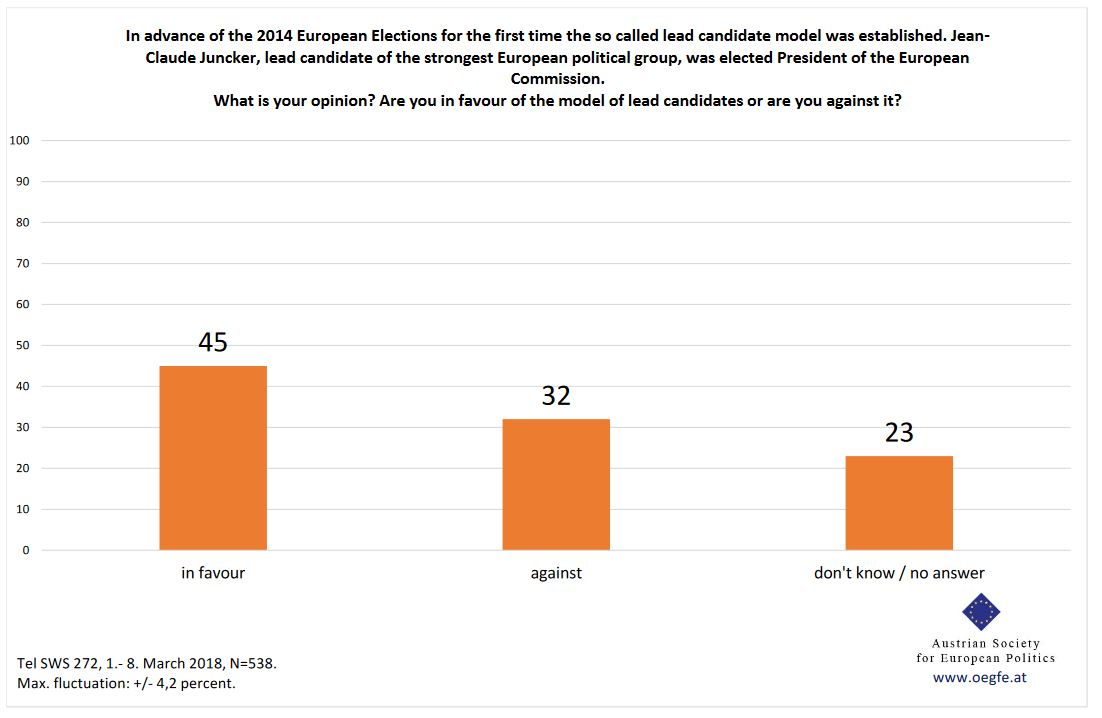The next European Parliamentary Elections will take place in little more than a year. At EU level this is also a cause to deliberate on institutional issues. For Austrians though such debates still remain rather abstract, a new ÖGfE survey shows.
In advance of the 2014 European elections five European political groups for the first time nominated lead candidates to run for the position of the president of the European Commission with the goal to strengthen democratic legitimacy and increase voter turnout.
45 percent of Austrians say in the new ÖGfE survey (March 2018) that they have a positive view towards this “Spitzenkandidaten” model. 32 percent though have a negative view while nearly one quarter of respondents cannot make up their mind (23 percent).
48 percent doubt that European lead candidates would increase their personal motivation to cast their vote in the next European elections. 40 percent think that this could indeed be an incentive for them to take part in the elections (12 percent “don’t know / no answer”).
EU leaders have to decide to maintain a European Commission with one member from each member state or make it smaller. 50 percent of Austrians would opt for maintaining the “traditional” system while 43 percent would opt for a smaller Commission even if this would mean that some member states temporarily have to do without an “own” member (7 percent “don’t know / no answer”).
Austrians are divided when it comes to the question of merging the positions of the Presidents of the European Commission and the European Council. 46 percent say that this would be a good idea while 41 percent would reject it (13 percent “don’t know / no answer”).
The current survey was conducted from 1 to 8 March 2018 by the Sozialwissenschaftliche Studiengesellschaft (SWS) on behalf of ÖGfE. 538 persons were questioned via telephone (Austrian population from the age of 18 / weighted according to gender, age and education). Maximum margin of fluctuation approx. +/- 4,2 percent. Difference to 100 percent due to rounded values respectively (*) „don’t know / no answer.)






